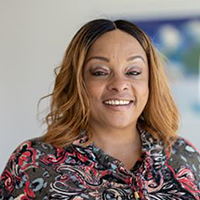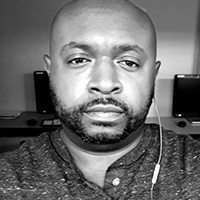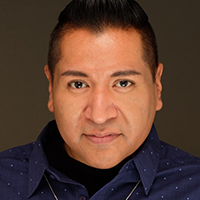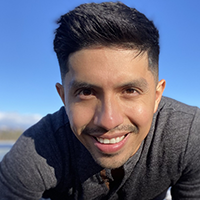We are honored to present a 4-part virtual learning series as a collaboration between the Central East PTTC, Central East ATTC, National American Indian & Alaska Natives PTTC, and the National Hispanic and Latino PTTC.
Together, we will connect you with subject matter experts from various diverse cultural backgrounds. This will provide a perspective of what LGBTQIA2S+ BIPOC individuals would like Prevention Professionals to know when serving the population.
We will start by interpreting acronyms associated with LGBTQIA2S+ communities:
LGTBQIA2S+ is an acronym for Lesbian, Gay, Bisexual, Transgender, Queer and/or Questioning, Intersex, Asexual, Two-Spirit, and countless affirmative ways in which people choose to self-identify.
BIPOC refers to Black, Indigenous, and people of color. People of color is an umbrella term generalized to all people who aren’t white.
Please join us for a roundtable discussion. Participants will have an opportunity to learn from subject matter experts, as well individuals whom identify as BIPOC and/or LGBTQIA2S+. Cultural aspects and specifics of each culture represented in the series will be discussed, as well as what historical data are behind the challenges faced by each group.
Participants will also learn about the specific risk and protective factors, difficulties the communities are experiencing with current Behavioral Health Systems, how to enhance the strengths of each system to increase engagement and retention, as well as many other critical topics.
By the end of the series, participants will leave with knowledge and tangible actions to help make a difference, as an important part of our role as prevention professionals. What can we do to educate ourselves and serve the population better and with respect and humility?
Participants will have the opportunity to ask questions for our presenters during the live event.
Series Overall Learning Objectives
 Anna Mable-Jones CPRS, NCPRSS
Anna Mable-Jones CPRS, NCPRSS
Anna Mable-Jones CPRS, NCPRSS Anna Mable-Jones CPRS, NCPRSS is an Oxford House Resource Coordinator in DC and Maryland, a nonprofit network of 2,684 (internationally) self-help recovery homes. She assisted in opening 43 DC/MD Oxford Houses. She is a woman in long-term recovery who has been in recovery since 1999 and has worked with Oxford House, Inc. since 2000, recipient of the 2005 Oxford House Founders Award. Anna is a true ambassador for women in recovery. She radiates the power of recovery and transformation every day. Anna is a trainer in Wellness Recovery Action Plan Facilitator and CCAR Recovery Coaching Trainer. Anna is in here 4th year training to become a Core Energetics Practitioner. She has had many opportunities to work with community organizations and leaders to promote the societal benefits of prevention, treatment and recovery for substance abuse and mental illness. One of Anna’s passions in life is to be a continuous educator of hope and persistence and shares her experiences freely. Along with devoting her spirited knowledge to Oxford House, she has also created a successful 12-Step bible study called Life Recovery at her local church. Anna is also a Reiki Master Teacher and a founding member of District of Columbia Recovery Community Alliance (DCRCA) a Peer Operated Center.
 Demetrie Garner
Demetrie Garner
Demetrie Garner is a Peer Recovery Specialist at the Emergency Department. This has given him the vantage point to encounter minority disparities. A lack of health communication targeted to African-Americans, and other minorities help further this disparity. As a Peer Recovery Specialist, the visible cracks of systemic inadequacies in health care and its access garners attention and policy changes in patients with substance use disorders. The experience in active addiction abusing opiates, cocaine, and alcohol for 26 years with countless relapses fostered the expertise needed to help others in active addiction. Finding recovery over the last 2 and 1/2 years while working in the recovery field has given Demetrie a unique perspective on recidivism and retention throughout the process of recovery. With the help of the God of his understanding (Jesus Christ), Narcotics Anonymous, and healthy relationships, the pathway of a daily reprieve from active addiction is now possible. Continuous work through pastoral licensed counseling has unlocked the acceptance of childhood molestation and recovery from trauma. Demetrie is currently a Pre-McNair Scholar with ambitions to attend the UMBC School of Public Policy M.P.P Program in spring of 2022 after obtaining his Bachelor’s degree in Public Health.
 Matt Ignacio (Tohono O’odham), PhD, MSSW
Matt Ignacio (Tohono O’odham), PhD, MSSW
Dr. Ignacio is currently an Assistant Professor at Arizona State University’s School of Social Work located in the Watts College of Public Service and Community Solutions. He has previously worked with the National American Indian and Alaska Native ATTC as a Research Manager and as a Senior Behavioral Health Consultant. Matt has also worked for the National Native American AIDS Prevention Center (NNAAPC) overseeing HIV education and capacity-building assistance programs. Prior to NNAAPC, Matt worked in the Michael Palm Center for AIDS Care and Support at Gay Men’s Health Crisis (GMHC), the world's first and largest AIDS service organization located in New York City. His responsibilities included developing, implementing and evaluating GMHC’s first sterile syringe access program and providing harm reduction-based alcohol and drug counseling. Matt received his Doctorate of Philosophy in Social Welfare at the University of Washington School of Social Work, his Master of Science in Social Work from Columbia University School of Social Work, and his Bachelor of Arts in Sociology from the University of California in Santa Barbara.
 Mr. Humberto Orozco
Mr. Humberto Orozco
Mr. Humberto Orozco grew up in Gainesville, Georgia and comes from a humble, hardworking family with roots in Mexico. At eight years of age, his family moved to the U.S., where he went on to become a first-generation college graduate. As a person of queer, immigrant experience, Humberto became aware of the injeñustices faces by people of marginalized identities and, as a result, equity and liberation guided him to involved in community activism. Humberto earned a B.A. at the University of Georgia and has remained involved as a volunteer with organizations whose mission aligns with his personal mission of empowering people and centering equity at all levels. Humberto currently leads Latino LinQ’s Board of Directors and is a community educator at the Emory University School of Medicine.